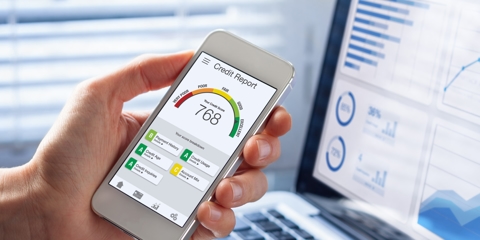Debt consolidation lets you combine all of your unsecured debts into a single monthly payment. By consolidating the money you owe into a single monthly payment, you can stop juggling bills with balances that you can’t pay down.
Debt is a common problem in the United States. The total amount of consumer debt in the U.S. is up to $13.51 trillion.
Consider the following ins and outs of debt consolidation to give you a better idea of how debt consolidation can help you improve your finances.
Debt consolidation simplifies your bills
When you consolidate your debt by using a financial tool such as a personal loan, you’re essentially taking multiple bills with high-interest rates and combining them into a single, fixed-rate monthly payment. This helps to prevent high-interest rates from preventing you from paying off your debt.
However, it should be mentioned that debt consolidation doesn’t get rid of your debt. It just makes your debt easier to manage and keeps interest rates down.
Debt consolidation can potentially lower your overall interest rate
Interest rates can keep you from being able to pay off your debt. When your interest rate is higher than your minimum payment, you’re essentially running financially in place.
Debt consolidation may be able to lower your overall interest rate so you can make real strides towards getting your overall debt under control. It also helps to save thousands of dollars in interest. Some personal loans offer fixed interest rates so keep your monthly payment from changing.
Debt consolidation can boost your credit score
The more interest accrues on your debt, the higher your minimum payment increases. And the higher your minimum payment increases, the more difficult it becomes to pay. Because of this, high-interest rates can easily kick your credit score to the curb and hurt your financial future.
Debt consolidation can help to create smart money-management habits to improve your credit score so you can accomplish your financial goals.
However, debt consolidation isn’t for everyone. If you’re unable to pay back your debt, filing for bankruptcy with a bankruptcy lawyer may be the better financial option for you.
Looking for a debt consolidation lawyer or a bankruptcy attorney?
If you’re struggling to manage your debt, you’re not alone. In fact, the average U.S. household with a credit card has up to $8,284 in credit card debt.
The bankruptcy attorneys of Holston and Huntley can help. For more information about debt consolidation, Chapter 13 bankruptcy, and filing for Chapter 7 bankruptcy, contact the bankruptcy attorneys of Holston and Huntley at (404) 620-3337 to schedule a consultation today.





